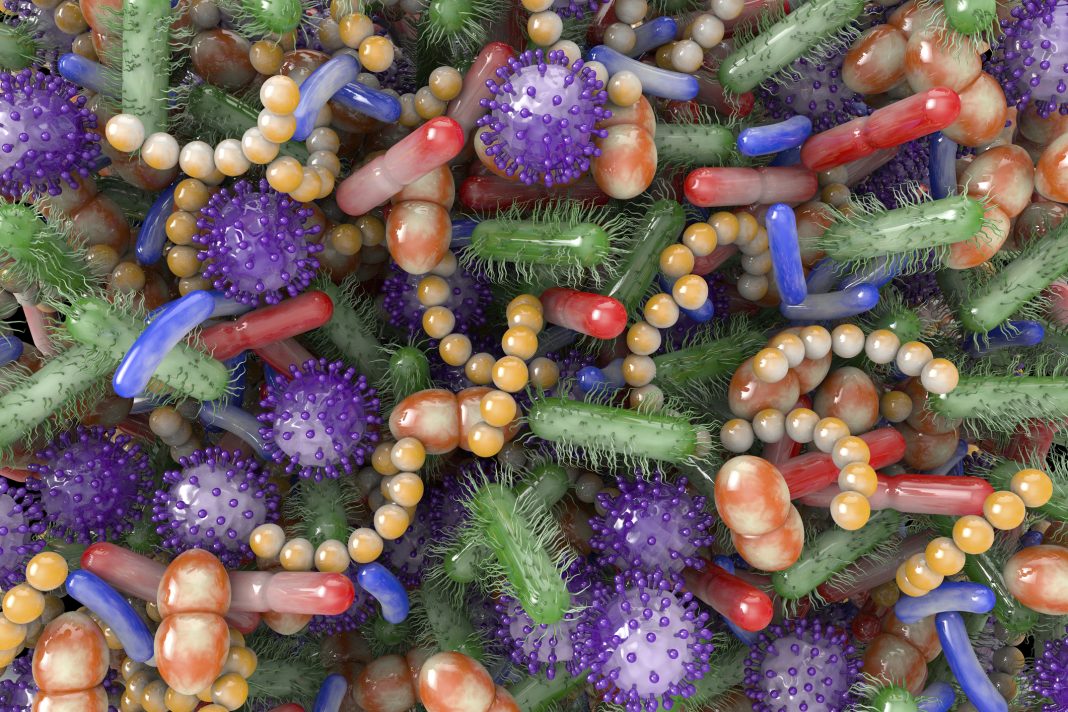Investigators from Canada’s McMaster University have recently found that microbes in the maternal intestine may contribute to an impairment of the gut barrier during pregnancy. Researchers discovered these changes by feeding their female mice a diet high in fat for six weeks before and throughout pregnancy. Findings from the new study were published recently in The Journal of Physiology through an article titled “High‐fat diet intake modulates maternal intestinal adaptations to pregnancy, and results in placental hypoxia and altered fetal gut barrier proteins and immune markers.”
Scientists previously thought the changes in maternal metabolism that happen during pregnancy were due entirely to pregnancy hormones. We now believe that changes in the microbes that live in the maternal gut may contribute to these metabolic changes. If they do, then this provides us with a therapeutic opportunity to modify this microbial community during pregnancy to improve maternal and offspring health.
The gut typically acts as a barrier preventing microbes and other intestinal contents from entering the bloodstream, but in pregnant mice, more molecules were able to cross this barrier. This loss of barrier was even greater when pregnant mice were fed a high-fat diet (HFD), resulting in increased inflammatory markers in maternal circulation.
“In this study we generated cohorts of female C57BL/6J mice fed a control (17% kcal fat, n = 10–14) or a high‐fat diet (HFD 60% kcal from fat, n = 10–14; ad libitum) to investigate impacts on the maternal gut microbiota, intestinal inflammation, and gut barrier integrity, placental inflammation, and fetal intestinal development at E18.5,” the authors wrote. “HFD was associated with decreased relative abundances of SCFA producing genera during pregnancy. These diet‐induced shifts paralleled decreased maternal intestinal mRNA levels of SCFA receptor Gpr41, modestly decreased cecal butyrate, and altered mRNA levels of inflammatory cytokines and immune cell markers in the maternal intestine.”
The authors continued, stating that “maternal HFD resulted in impaired gut barrier integrity, with corresponding increases in circulating maternal levels of LPS and TNF. Placenta from HFD dams demonstrated blood vessel immaturity and hypoxia, decreased free carnitine, acylcarnitine derivatives, TMAO, as well as altered mRNA levels of inflammation, autophagy, and ER stress markers. HFD exposed fetuses had increased activation of NF‐κB and inhibition of the unfolded protein response in the developing intestine.”
These changes in the mother may be impacting the development of the placenta, as placental oxygen levels were decreased by a maternal high-fat diet. Changes in the placenta could contribute to altered fetal development which was what the authors found in the fetal intestines. Impaired fetal intestinal development could lead to altered intestinal function after birth and ultimately impact the baby’s metabolism.
The research team studied how the intestinal community of microbes changed. They tested the maternal intestinal barrier by measuring how much of a large molecule was able to cross from the maternal intestine into the bloodstream and then looked at how the placenta and fetus developed.
“We are currently investigating when these changes in maternal barrier function occur and how they interact with the microbes in the intestines to influence the metabolism of the mom and development of the baby,” concluded senior study investigator Deborah Sloboda, PhD, professor of biochemistry and biomedical sciences at McMaster University.







